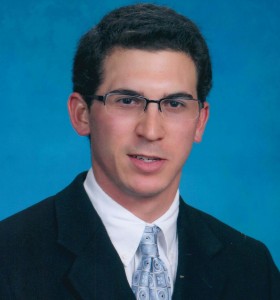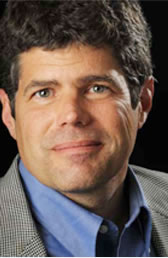By Jonathan Miller, on Tue May 15, 2012 at 5:00 PM ET Thanks for joining us for what I believe was a very enlightening, and sometimes even entertaining debate on the relevance of Mitt Romney’s alleged bullying of a fellow prep school attendee nearly 50 years ago.
Some concluding observations:
- I thought the colloquy between Jeff Smith and Artur Davis on marriage equality and gay rights was fascinating. While I agree with Jeff, I was impressed with Artur’s reasoning. Usually, the anti-equality side relies strictly on Bible verses or evades the fundamental issues. I’m pleased in how Artur enriches the civil dialogue even though I disagree with his conclusions.
- While this site is primarily focused on the views of recovering politicians, I am really glad to involve the perspective of others as well. David Host and Ron Granieri both offered some very interesting takes from their perches in the private sector and academia, and I was especially pleased to hear the perspective of Gen Y’ers Robert Kahne, Zac Byer, and Jordan Stivers who aren’t too removed from their teen years. Gay marriage, rights, and bullying are issues that polarize us generationally, but it is the Y’ers views that will be around for a lot longer.
- Aren’t John Y. Brown, III and Rod Jetton hilarious?
- I deeply apologize about including Steven Schulman‘s lame insights in an otherwise fascinating debate. You have to understand, his mom sends me a batch of her incredible, world-famous brownies every time I publish one of Steve’s pieces.
By RP Nation, on Tue May 15, 2012 at 4:45 PM ET Opines Rabbi Jonathan Miller, Birmingham, AL:
I agree with my namesake, Jonathan, and spoke from that way from my pulpit in Alabama. In my experience, people change, and some people change radically and become their better selves. This was a shameful incident. But we do not elect 17 year olds to the office of President, thank God.
Further, I felt badly that Romney had to play dumb, that he couldn’t fess up or tell the world who he changed because of the gotcha political environment. The muted reaction to this event from the candidate and his minions was a result of trying to finesse the news cycles.
Says Linda Curry, Harrods Creek, KY:
I think he should definitely be held accountable. Romney was eighteen (18) years old. Legally he was an adult. Yes, it matters what he did fifty (50) years ago. He wants us to elect him President of the United States. From what I am hearing of his comments he will certainly “bully” the poor and helpless in favor of the ultra rich. He even tried to laugh the matter off as not remembering it. If he were honest with the American people he would not try to act like it didn’t happen.
Read the rest of…
The RPs Debate Romney Bullying: The RP Nation Weighs In
By Artur Davis, on Tue May 15, 2012 at 4:30 PM ET [Click here to follow the entire RP Debate]
Jeff Smith’s response to my position is a thoughtful clarification. It deserves the following clarification on my part: first, I do think there is room to criticize the termination of Grenell as a needless concession to anti-gay sentiment on the right; there is also as much room to view it as a legitimate reflex in a campaign that has had a consistent issue with staffers who draw too much attention to themselves (remember the debate coach who was sacked last fall after talking out of school about his role in Romney’s debate prep?). My point is simply that it is a fit subject for debate and not a closed, easy case, and I should have expended the time in making that clear.
Second, on the much broader observation that Jeff makes, I actually agree with his point that those of us who aren’t there on gay marriage have an obligation to ground those criticisms in themes that resonate beyond the evangelical community, and that don’t just reflect animus against one class of citizens. I have made that point in a posting on my own blog, officialarturdavis.com last week. I quote part of my observations below:
“The media-filtered reaction to President Obama’s endorsement of gay marriage has been predictable: an undercurrent of exaltation in the newsrooms that have long ceased to think of homosexuality as anything but another form of freedom; cherry-picked evangelical leaders who fit that same media’s expectations of what social conservatism looks and sounds like. To be sure, the networks and cable have brought forth their share of high profile African American ministers and Catholic bishops, but they aren’t the woman in that southern church running a youth group, trying to grapple with how social change shapes fatherless neighborhoods: the preachers and clerics are speaking in the accents of scripture and biblical text, which most Americans are in the custom of preaching not practicing.
It would be a healthy thing if more of the debate featured voices like the woman I described. It would be equally healthy if more conservatives (and frankly, conservatives disagree with each other on this issue, liberals are entirely of one mind) had weighed in not with jibes at Obama’s timing or the sincerity of his original, pre-”evolving” mindset, but with an honest declaration that the argument over gay marriage does not have the same contours today as it did ten years ago. The fight for most Americans going forward is whether the legal future of same sex marriage is determined state by state, with voters and democratic processes deciding this issue, and not by federal judges deploying an elastic construction of the equal protection clause; and secondly, whether sectarian institutions like Catholic adoption agencies will preserve their own freedom of conscience or lose it to public and elite opinion.
While I don’t couch it as a character defect, just a blown tactical opoortunity, Romney did miss a moment last week to make the kind of statement of purpose that Jeff alludes to here, and that I touched on last week, but not in the context of the Washington Post’s hit job. He could have used his speech at a relligious college last weekend to make the point that principled Americans can differ on the definition of marriage; that his reading of the Constitution and his preference for states to decide their own social cultures leads him another way, but that he respects the voices of those who think the issue is a clear-cut matter of justice. He also might have added that conservatives should take comfort from the fact that after decades of marriage attracting some cultural derision in smart, chic circles, its a good thing that the institution is being embraced by a cultural left that was skeptical to say the least in the seventies, when Gallup showed all time lows in faithfulness and expectations of monogamy.
Had Romney gone that route, he would have been criticized on the left and the right for trimming on a moral point. But he would have evoked the tones around a lot of dinner tables last week, and he would have sounded like a leader whom the people at those dinner tables could get used to seeing on their screens for four years.
By Jordan Stivers, on Tue May 15, 2012 at 4:00 PM ET  [Click here to follow the entire RP Debate] [Click here to follow the entire RP Debate]
I do agree with many of you that this apparently isolated incident from many years ago should not by itself raise concerns about Mitt Romney’s ability to be a good President.
For me, there are several other legitimate reasons to believe that he is not the right person to lead this country, but this isn’t one of them.
I do, however, think that this was a missed opportunity for Mitt Romney to reveal his humanity, and his ability to admit mistakes and learn from them.
He should have acknowledged the incident, and then shifted the focus by talking about how he realized that he was wrong, and reiterate his respect for all people, etc.
Instead, in typical Romney fashion, he acted like he had no recollection of the event (which isn’t very believable.) He ended up acting flustered, like he does when he is asked an uncomfortable question about his record.
Whether he is or is not an honest and decent person I am sure I will never really know. As voters, all we have to go on is what we observe as the candidates undergo the often brutal scrutiny that comes with running for President. We need to know if the leader of the free world can be honest and reflective, and if they can handle criticism, even if it is unfair or irrelevant.
In summary, it is not the bullying as a teenager that concerns me, it is the response as an adult who is running for the highest office in the land that does.
By Steven Schulman, on Tue May 15, 2012 at 3:30 PM ET  [Click here to follow the entire RP Debate] [Click here to follow the entire RP Debate]
How about this thought experiment:
What if the victim had been a girl, and he had ripped off her bra because she dressed like a beatnik? No groping, nothing sexual, just mean.
If that is different, why?
Also, the analogies to using alcohol and marijuana ring quite hollow. Those are personal experiments, not harassment of others.
This conduct is surely not disqualifying by any stretch – I don’t think anyone is saying that it is. But the contrary position — that it deserves no attention at all — is not realistic. This is one of the things that goes into the basket of judging character, and Romney’s recent behavior, his marriage, etc., that voters can and should look at to get a picture of the man who wants to be our president.
By Jeff Smith, on Tue May 15, 2012 at 3:00 PM ET  [Click here to follow the entire RP Debate] [Click here to follow the entire RP Debate]
Artur writes that “if one’s perspective is that Mitt Romney’s opposition to gay marriage and his parting of ways with a staffer whose public position was at odds with his own both amount to homophobia or bigotry,” then there is no room left for civil debate.
A bit of sophistry there. I never said that Romney’s position or his pushing out of Grenell amounted to homophobia and bigotry. I said that it amounted to a weakness of character.
While out, loud, and proud, Grenell worked for eight years for George W. Bush, serving as spokesman to Ambassadors Bolton and Negroponte, as well as John Danforth and Zalmay Khalilzad. Bush, of course, also strongly opposed gay marriage and pushed a constitutional amendment to ban it. The point is that Grenell was at odds with Bush too but Bush understood that not every member of your administration will agree with every single one of the administration’s positions; it is, however, critical that employees agree with those positions in the realm in which they work.
But as Jonah Goldberg from Artur’s own NRO writes, Romney should understand that if you’re going to oppose gay marriage, you will have zero chance of convincing anyone your position isn’t driven by anti-gay animus if you’re also opposed to gays working in policy areas that have nothing to do with gay marriage.
By Greg Harris, on Tue May 15, 2012 at 2:30 PM ET  [Click here to follow the entire RP Debate] [Click here to follow the entire RP Debate]
I truly hope discussion about the Post piece doesn’t turn into debate about its timing versus substance.
Reporters are digging into Romney’s post, just as they dug into Obama’s (Rev. Wright, etc). In doing the digging, they came upon the recollections of grown, prosperous men about a bullying incident that haunted them through the years. A peer at their school was harassed, held down and sheared. The prosperous son of a Governor/Big 3 CEO committed the act. That’s pretty damn mean.
What concerns me all the more is that Romney seems to acknowledge the incident, though with faint memory. I think a human being should remember something like that–that is, unless they are wired differently.
Of course, this wouldn’t be as relevant if Romney’s policy positions didn’t reveal callous attitudes towards the GLBT community. Physically restraining a “different” student is one things; policy prescriptions that restrain an entire population from military service, the right to marriage or even civil unions, brings such dehumanization to scale.
By Zac Byer, on Tue May 15, 2012 at 2:00 PM ET  [Click here to follow the entire RP Debate] [Click here to follow the entire RP Debate]
I find this incident so insignificant to why – or why not – Mitt Romney should be our next president that I’ve been searching for some larger social significance.
A few years removed from college, I think back to all the pictures some of my friends and I didn’t take for fear of where and when they might resurface. It wasn’t worth putting ourselves in particular situations, we figured, no matter how typical they may be for twenty-somethings in college.
And though we were probably right, I found these experiences frustratingly calculated. Think about all that you have learned about yourself because of the variety of your experiences. Shameful or satisfying, angering or alleviating, it’s safe to say they were all educating in one way or another.
Do I wish Romney hadn’t mistreated that kid 50 years ago? Of course. And I’m sure Mitt wishes otherwise, too.
But until a slew of stories arise that reveal Romney was a pathological bully, I’m looking at this as a moment from which Romney learned right from wrong. He made a mistake – we all do – and he learned from it. Frankly, I’d be much more disappointed in him if I found out Romney stood on the sidelines while his friends picked on a classmate simply because Mitt was afraid it would come back to haunt his future political career.
Experience life and make some mistakes – it’ll be clear enough to your potential investors or voters whether or not you learned from them.
By John Y. Brown III, on Tue May 15, 2012 at 1:30 PM ET  [Click here to follow the entire RP Debate] [Click here to follow the entire RP Debate]
Robert,
Great point about Romney’s response needing to be honest and opening inroads for an important dialogue.
Like so many instances of public discussion of a public figure’s heretofore private life incidences , it’s the response –not the act—that’s the thing. The teen behavior by Romney, if true, is reflective of a narrow and hurtful view of homosexuality while he as a teen. But if he deliberately deceived the public about the incident as a 65 year old candidate for president, that would bother me quite a bit more.
I believe that if a candidate is comfortable with themselves and their past, it allows the public (voters) to be comfortable with them—and their past. They trust the person who stands before them today that their prior mistakes were duly noted, reconciled, and learned from. But if the person has not made this peace with their past bad acts and integrated them into their present selves, they are merely managing a public image not reflective of who they really are. And will struggle to gain credibility with the voters who they seek to lead.
Artur,
Touche regarding the Washington Post’s coincidental timing. Perhaps a form of selective and sophisticated journalistic bullying?
By Artur Davis, on Tue May 15, 2012 at 1:00 PM ET [Click here to follow the entire RP Debate]
Having gotten lost in this thread long ago, I will re-enter only to make a few observations:
-If one’s perspective is that Mitt Romney’s opposition to gay marriage and his parting of ways with a staffer whose public position was at odds with his own both amount to homophobia or bigotry, there is not much room for civil debate. I would beg to differ, and would only urge that a topic on which the country seems almost evenly split deserves a less absolutist frame.
-On the larger question of relevance, I side with the Miller/Steele way of looking at this episode: too long ago, too hard to separate from the context of juvenile foolishness, too hard to invoke against Romney without setting a standard that would scorch too many others. I also found intriguing one line of comments to the effect that the whole business of background mining to determine character would have wreaked havoc with a lot of good presidencies. It’s not that character has nothing to tell us about the potential misuses of power, but that it requires much more depth of knowledge and much more texture than today’s weakly sourced media snapshots can generally provide. And surely there is some statute of limitations.
-As to the other nagging charge, that Romney’s handling of this episode is revealing of some lack of empathy, I plead confusion. Should he have really waxed eloquent about a thing that he likely barely remembers, and that he reasonably contends has not much to do with his current values? Should Barack Obama have shown more anguish in describing the costs of teenaged drug use, or George Bush more passion in describing the wages of alcoholism? I’ll side with whoever said that the passions of these candidates on where they plan to take the country are worth more than their passions about their life lessons.
-Final point: I’ll confess disappointment that no one has bothered to address the timing of the Washington Post story, especially on a blog where more than a few of us have been at the mercy of press selectiveness in our past political lives. Timing is a huge power in journalism and the choice to run this story the day it ran is hard to qualify as anything other than a hit job. It was a pretty-clear cut instance of a news organization trying hard to link a 48 year old account to a current position on an issue. That is advocacy, not balls and strikes journalism; fine for a Huffington Post blogger, not fine for the second political paper of record in the country.
|
The Recovering Politician Bookstore
|














